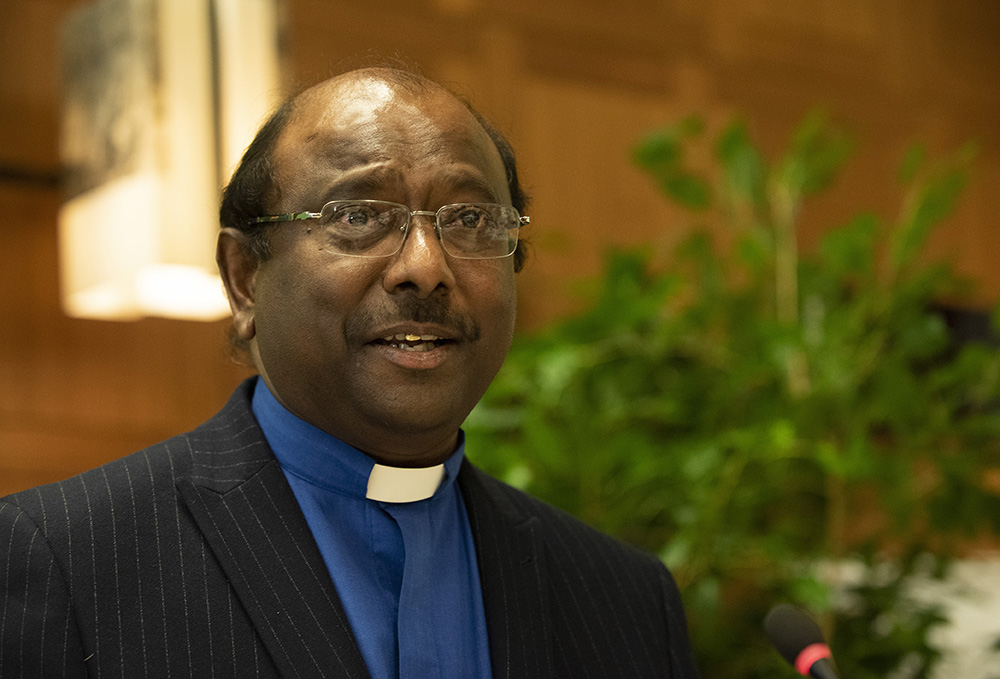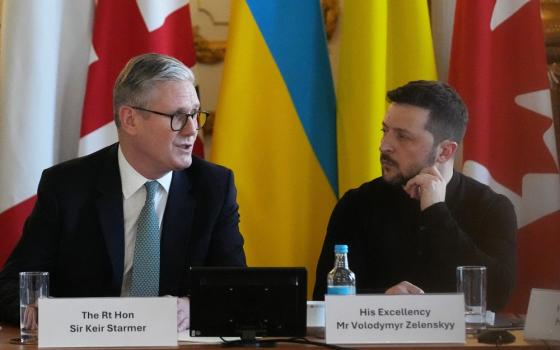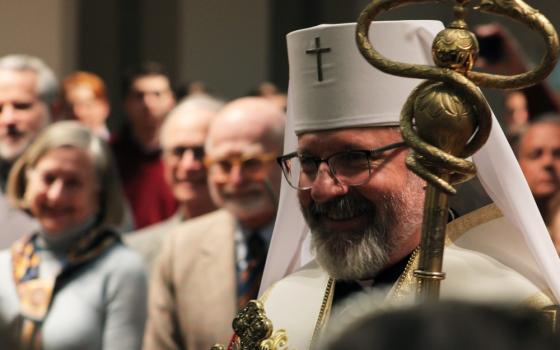
The Rev. Jerry Pillay, general secretary of the World Council of Churches (Wikimedia Commons/WCC/Peter Williams)
Pope Francis on March 23 offered his support for a new effort to bring together divided Russian and Ukrainian Orthodox church leaders for an in-person, roundtable summit as the 13-month war against Ukraine continues to splinter religious communities, with repercussions throughout Christendom.
The initiative is being organized by the World Council of Churches, a fellowship of more than 350 churches in more than 120 countries. According to its general secretary, the Rev. Jerry Pillay — who met with Francis at the Vatican on March 23 — the pope gave his blessing to the proposed encounter and reiterated the need to put "Christ in the center" of the conversation ahead of political or national divisions.
"The pope has expressed a concern, like we have done, that churches are seemingly too divided because of political issues," Pillay told NCR in an interview following his meeting with the pontiff.
Since the invasion began in February 2022, Russian Orthodox Patriarch Kirill has become a key backer of Russia's war effort, leading to a split between Ukraine's Orthodox Churches, one that still maintains ties to Moscow and one that has been granted independence. The war has also led to a further fracturing among other Orthodox communities beyond the two countries.
Yet the World Council of Churches is seeking to bridge some of those divides, with hopes to host a three-day summit aimed toward dialogue and reconciliation.
The tentative plans, according to Pillay, are for a one-day meeting of Ukrainian Orthodox Church leaders, followed by a one-day meeting of Russian Orthodox leaders, and then a roundtable discussion with all of the participants on the concluding day. To date, no participants have been announced, though plans are for the meeting to take place in Geneva, where the World Council of Churches is headquartered.
Advertisement
"People are exhausted about what is happening in the world and the relentless war that continues," said Pillay. The goal of the summit, he said, would be to consider the question of "How do we rise above these things and respond to these things with the Christian Gospel in front of us?"
In light of Kirill's use of religion to back the war, the World Council of Churches has faced pressure from some of its member churches to expel the Russian Orthodox Church from its membership.
The council has consistently rejected those efforts.
"We believe that we provide a platform for differing views and we continue to encourage dialogue until dialogue gets exhausted," Pillay told NCR. "If we have them around the table, we can talk. If we don't have them at the table, then it's a lost cause."
"And I think that's the Christian spirit, as well, to bring people into the conversation," he added.
At the same time, he vowed that the council would "not forsake its prophetic witness" and will continue to "clearly and categorically denounce war," both in general, and specifically when it comes to the invasion of Ukraine.
The South African-born Pillay, who began his five-year term as the council's new general secretary in January, said he also discussed with Francis plans for the celebration of the 1,700th anniversary of the Council of Nicaea in 2025, which he said he anticipates being an ideal time to "maximize the potential to display Christian unity."
Francis has previously noted the significance that both Eastern and Western Christian churches will share a common date for Easter that year and the hope that the communions could come to an agreement to make it permanent.
Pillay also said that as a part of the Nicaea anniversary celebrations, he would like to see all Christians be able to celebrate the Eucharist together.
While acknowledging the difficulties of it due to both doctrine and history, he said it's a "breakthrough" that he will continue to pursue.
"If we can actually cross that bridge and have a place where Christians can come together and break bread at the table, that would be a significant visible witness of Christian unity to the world," said Pillay.






